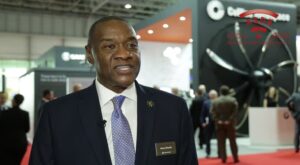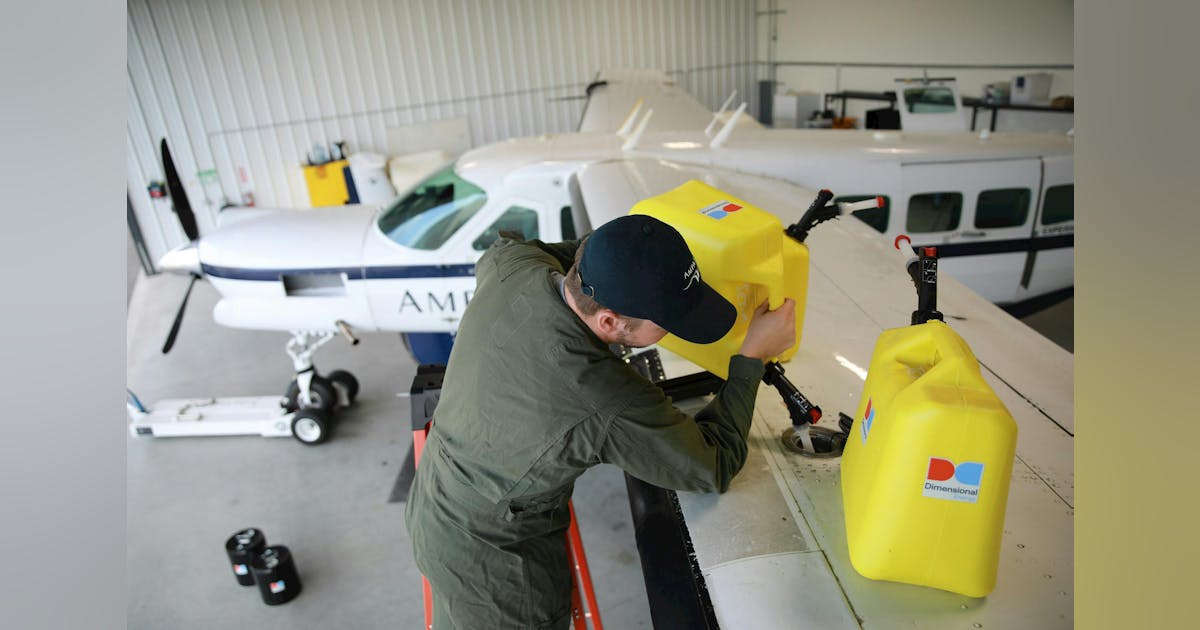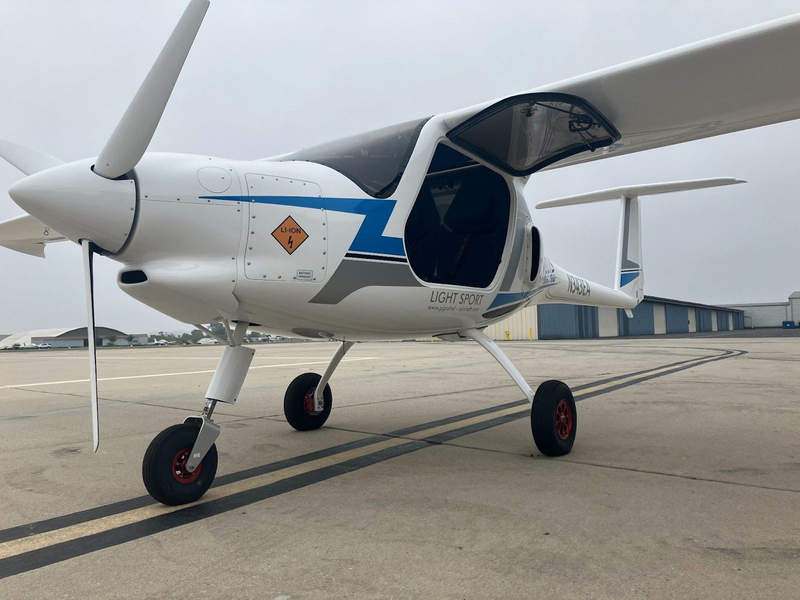
A UConn team and fellow research partners are designing a carbon-neutral energy storage and power generation system that could serve as an alternative for aircraft propulsion. This Boeing 737-sized airplane model is equipped with efficient open fan propulsors on the wings and fuel cell powerplants in the rear fuselage. (Image courtesy of John Carroll/University of Louisiana)
“This is an amazing time to see humans starting to transition from using internal combustion engines to electrics; kind of like when we moved from wood to coal and coal to oil,” says David L. Daggett, a scholar affiliated with UConn’s Center for Clean Energy Engineering (C2E2).
The project, titled “High Performance Metal-Supported Solid Oxide Fuel Cell (SOFC) System for Range Extension of Commercial Aviation” is supported by a $4.5M cooperative agreement from the U.S. Department of Energy Office of Advanced Research Projects Agency – Energy (ARPA-E) under its Range Extenders for Electric Aviation with Low Carbon and High Efficiency (REEACH) Program. This grant will support Phase II of the project over a two-year period.
“We are thrilled that ARPA-E is continuing to support this project as we’ve already made significant progress,” says Xiao-Dong Zhou, the Nicholas E. Madonna Chair in Sustainability, Connecticut Clean Energy Fund Professor of Sustainable Energy, director of C2E2, and professor of chemical and biomolecular engineering, materials science and engineering, and mechanical engineering at UConn.
“This is an amazing time to see humans starting to transition from using internal combustion engines to electrics; kind of like when we moved from wood to coal and coal to oil,” says David L. Daggett, a scholar affiliated with UConn’s Center for Clean Energy Engineering (C2E2).
The project, titled “High Performance Metal-Supported Solid Oxide Fuel Cell (SOFC) System for Range Extension of Commercial Aviation” is supported by a $4.5M cooperative agreement from the U.S. Department of Energy Office of Advanced Research Projects Agency – Energy (ARPA-E) under its Range Extenders for Electric Aviation with Low Carbon and High Efficiency (REEACH) Program. This grant will support Phase II of the project over a two-year period.
“We are thrilled that ARPA-E is continuing to support this project as we’ve already made significant progress,” says Xiao-Dong Zhou, the Nicholas E. Madonna Chair in Sustainability, Connecticut Clean Energy Fund Professor of Sustainable Energy, director of C2E2, and professor of chemical and biomolecular engineering, materials science and engineering, and mechanical engineering at UConn.












